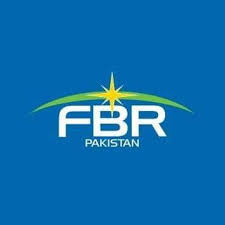Pakistan Customs: A Complete Guide
Introduction to Pakistan Customs
Pakistan Customs, under the Federal Board of Revenue (FBR), is a critical component in managing the flow of goods into and out of Pakistan. It plays a vital role in facilitating international trade while ensuring compliance with various laws and regulations. This guide aims to provide a comprehensive understanding of the customs process in Pakistan, essential for businesses and individuals engaged in international trade.
Key Functions of Pakistan Customs
- Regulation of Import and Export: Customs authorities regulate the import and export of goods, ensuring compliance with legal standards. This includes the assessment and collection of duties and taxes on imported goods.
- Trade Facilitation: Beyond regulation, Pakistan Customs is also responsible for facilitating legitimate trade. This involves streamlining processes to reduce time and costs for traders.
- Prevention of Smuggling: A critical function is the prevention of smuggling and illegal trade. Customs officials are tasked with detecting and seizing contraband goods.
- Revenue Collection: Customs duties are a significant source of revenue for the government. These duties are levied on imported goods as per the country’s customs tariff.
Customs Process in Pakistan
- Declaration of Goods: Importers and exporters must declare their goods using the Customs Declaration Form. This includes details like the nature, value, and quantity of the goods.
- Assessment and Valuation: Customs officials assess the goods based on the declaration and determine the applicable duties and taxes.
- Payment of Duties and Taxes: Importers must pay the assessed duties and taxes before the goods are released from customs.
- Inspection and Clearance: Customs officials may inspect the goods to ensure compliance with regulations. Once cleared, the goods are released for import or export.
Pakistan Customs Computerized System
This advanced system automates various customs processes, enhancing efficiency and reducing the time for clearance of goods. It also provides transparency and reduces the chances of corruption.
Tips for Smooth Customs Processing
- Accurate Documentation: Ensure all documents are complete and accurate to avoid delays.
- Understanding Tariffs: Familiarize yourself with the customs tariffs applicable to your goods.
- Compliance with Regulations: Be aware of and comply with all relevant regulations to avoid penalties.
Conclusion
Navigating through Pakistan Customs can be complex, but understanding its functions and processes is crucial for smooth international trade. By complying with regulations and leveraging the available resources, businesses and individuals can effectively manage their import and export activities.
For more detailed information, visit the Federal Board of Revenue’s website: [FBR – Pakistan Customs](https://www.fbr.gov.pk/customs-basics/51149/131168).


